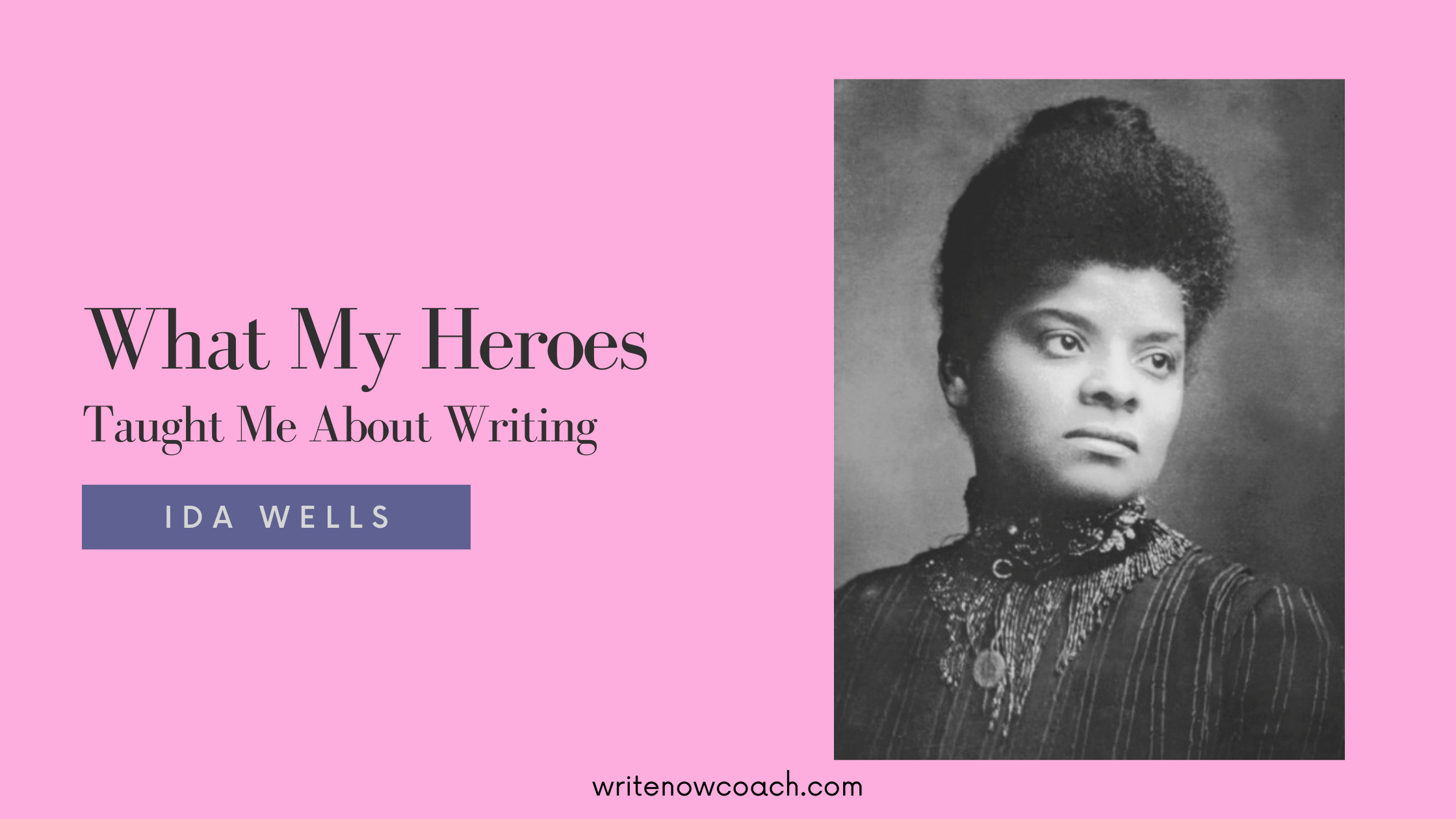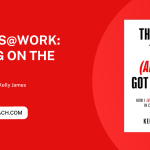What I Learned from Ida Wells
June 7, 2022
Note From Rochelle
Dear Writers,
This summer’s tips will be filled with series—book recommendations from some of the authors who’ve been on the blog in the last couple of years, productivity tips, and a special series on what I’ve learned from my favorite writers.
Today’s tip begins the series: What My Literary Heroes Taught Me About Writing.
Happy writing,
Rochelle, the Write Now! Coach
What My Literary Heroes Taught Me about Writing
Learning from Ida Wells
By Rochelle Melander
Who taught you how to be a writer? Who taught you the discipline of tracking your ideas and characters, setting aside time to shape those rough starts into stories, reviewing and revising your drafts into something others might want to read, and then figuring out how to sell them? And where did you learn how to manage your mindset and energy, so that you could persist through rejections?
As an author and coach, I’ve spent my career studying writing productivity. I’ve examined the practices that help and hinder our ability to write. I’ve read academic articles, how-to books, and more on the science of procrastination and productivity. But I think I’ve learned the most from reading about how other writers have done it.
This past year, I had the privilege of researching and writing a book about people whose writing changed the world. Mightier Than the Sword profiles leaders from a variety of disciplines who wrote poems, stories, laws, and protest documents that impacted their communities. I learned about their habits: how they made time to write, mastered their mindset, and more. This series will feature some of the lessons I learned from the people in the book. Today, we’ll learn from the amazing Ida Wells.
Know Your Why
Knowing why you write will help you persist when things get tough. Ida Wells was already a successful journalist when she learned about the lynching of her friend Tom Moss. That event gave Wells a new mission: to educate people about lynching and help eradicate it. She said, “The way to right wrongs is to turn the light of truth upon them.” Researching and writing the story of lynching wasn’t easy. While she was interviewing sources, an angry mob burned down her newspaper’s building. But Ida Wells persisted—because she had a purpose.
Your turn: Why do you do what you do? Your why does not have to be a social cause. It can be as simple as entertaining or educating readers. Whenever you get stuck or afraid, connecting to your purpose will help you persist.















